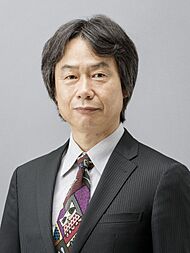Video game developer facts for kids
A video game developer is like a special kind of software developer who creates video games. This job can be done by one person doing everything, or by a huge company with many people working on different parts. For example, there are programmers who write the code, designers who plan the game, and artists who create the visuals.
Most game development companies get money and help with marketing from a video game publisher. But some developers fund themselves; these are called independent or indie developers. They usually make indie games.
A developer might focus on making games for certain game engines (tools for making games) or specific video game consoles. They might also create games for many systems, like personal computers and mobile devices. Some developers even specialize in moving games from one system to another, which is called porting, or translating games into different languages.
Many video game publishers have their own development studios. For example, Electronic Arts has EA Canada, and Nintendo has Nintendo EPD. Even though these studios make games, the main company is still known as a "publisher" because their main job is to release games.
Contents
Types of Game Developers
First-Party Game Developers
In the world of video games, a first-party developer is part of a company that makes a video game console. They mostly create games just for that console. Sometimes, they use the main company's name, like Nintendo. Other times, they have their own special name, like Sony's Polyphony Digital.
Some first-party studios used to be independent companies before the console maker bought them, like Rare or Naughty Dog. Buying a first-party developer is a big financial investment for the console company. But it saves them money later because they don't have to pay royalty fees for the games the developer makes. Examples today include Nintendo EPD for Nintendo and PlayStation Studios for Sony.
Second-Party Game Developers
"Second-party developer" is a term often used by gamers. It describes game studios that are hired by console makers to create games that are only for that console. These developers are not owned by the console company.
Because they can't release their games on other consoles, second-party developers usually get paid more for each game sold. These studios might have special agreements with the console maker. But they stay independent, so they can work for other publishers later if they want. For example, HAL Laboratory started making games for computers. But they became an early second-party developer for Nintendo, making games only for Nintendo's consoles.
Third-Party Game Developers
A third-party developer can also publish their own games. Or, they might work for a video game publisher to create a game. Both the publisher and the developer have a say in the game's design. However, the publisher's ideas usually come first.
The agreement between the developer and publisher is a contract. It lists goals, called milestones, that need to be met over time. When a milestone is finished, the publisher pays the developer an advance on their earnings. Successful developers might have several teams working on different games for different publishers. But often, third-party developers are small, close-knit teams.
Being a third-party game developer can be risky. Small developers might rely on money from just one publisher. If one game is canceled, it can really hurt a small company. Because of this, many small development companies don't last long.
A common way for a successful video game developer to grow is to sell their company to a publisher. Then, they become an "in-house" developer. In-house teams often have more freedom in game design. This is because they are employees of the publisher, so their goals are the same.
Activision became the first third-party video game developer in 1979. Four programmers left Atari, Inc. and used their knowledge to make their own games for the Atari VCS. They started Activision to sell these games. Atari tried to stop them, but they settled. Activision agreed to pay Atari a fee for making games for their console. This started the idea of paying licensing fees, which is still common today.
Nintendo also used this model when they let other third-party developers make games for the Famicom console. They set a 30% licensing fee. This 30% fee is still a common rate for games sold on digital stores today.
In recent years, big publishers have bought many third-party developers. Even though these teams are now "in-house," they often still work like independent studios. For example, Activision bought Raven (1997) and Treyarch (2001). These developers often keep working as they did before, but now they make games mainly for their new owner. Publishers tend to be more understanding if their own teams go over budget than they are with outside developers.
Indie Game Developers
Indie game developers are software creators who are not owned by a single publisher. Some of these developers publish their own games. They use the Internet and word-of-mouth to get people to know about their games. They don't have the big marketing budgets of major publishers like Sony or Microsoft. So, their games might not get as much attention.
However, with digital stores on game consoles, it's now easier for indie developers to release their games widely. Digital stores for PC games, like Steam, have also helped indie games reach more players.
Some indie game developers create games for many different publishers and gaming platforms. But this has become less common. Larger publishers like Electronic Arts are now more likely to use their own internal studios, which are often former independent developers they bought.
Working as a Game Developer
Working in video game development often happens in a relaxed office setting. People might wear t-shirts and sandals to work. While some find this environment great, there has been some criticism that it might not always be welcoming for women. The industry also often requires employees to work very long hours. Sometimes, these hours are so long that they are hard to keep up with. It's not uncommon for employees to feel burned out.
An entry-level programmer can earn around $66,000 a year if they get a job at a medium or large video game company. An experienced game developer, depending on their skills, earned about $73,000 on average in 2007. Indie game developers might earn between $10,000 and $50,000 a year. This depends on how well their games sell.
Game development is part of the entertainment industry, like movies and TV. Most entertainment jobs require long hours and a lot of dedication from employees. This might mean moving for a job or working on games that aren't your personal favorite. The creative rewards of working in entertainment attract many people to the industry. This creates a competitive labor market that demands high commitment and performance. Groups like the International Game Developers Association (IGDA) are talking more about these issues. They are concerned that working conditions might lower the quality of life for employees.
See also
 In Spanish: Desarrollador de videojuegos para niños
In Spanish: Desarrollador de videojuegos para niños



